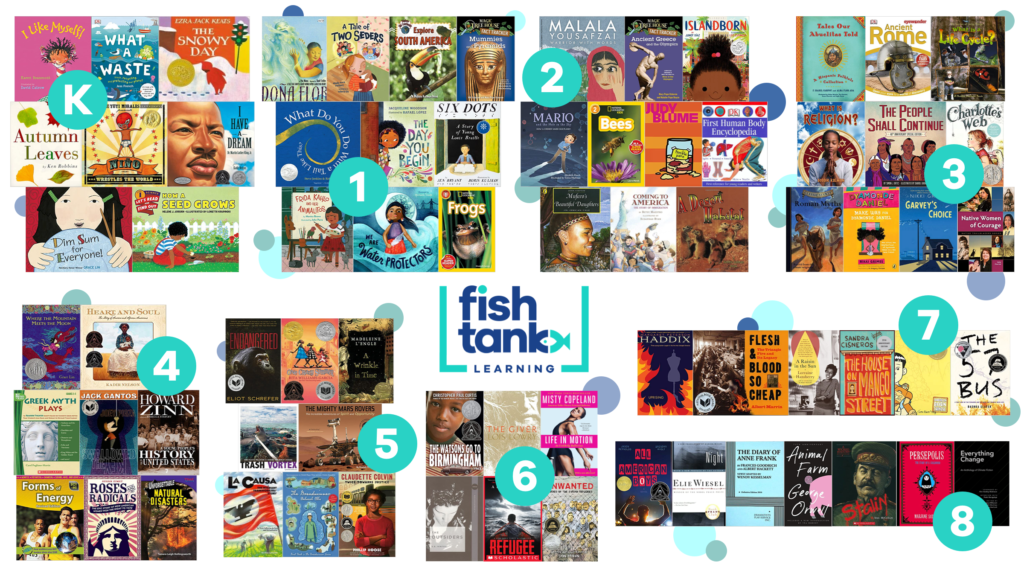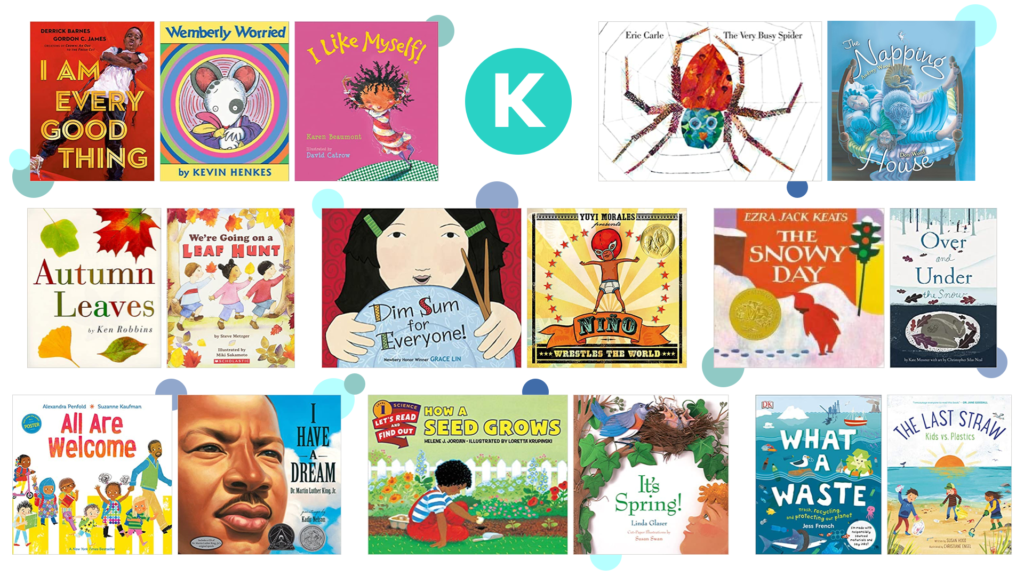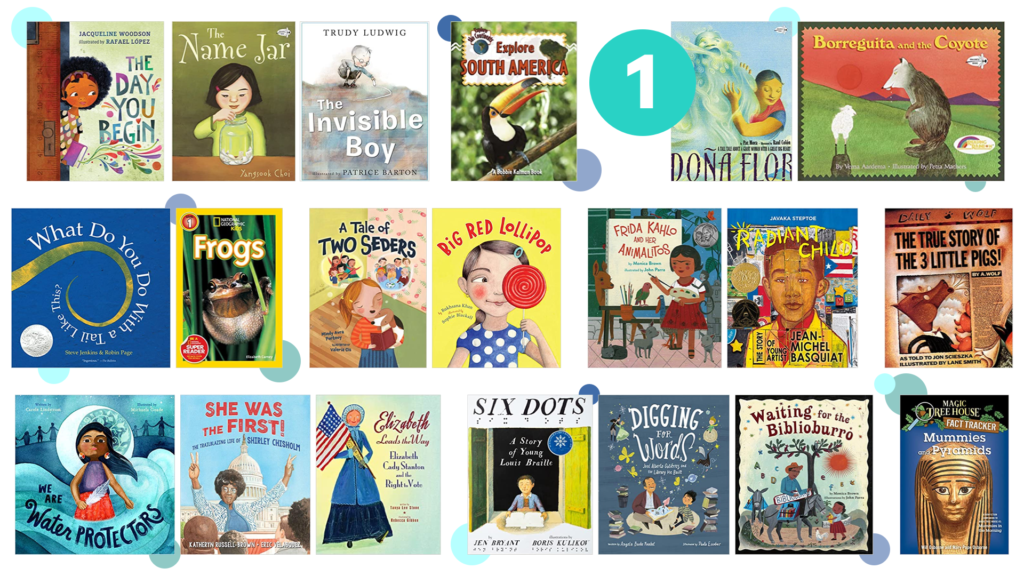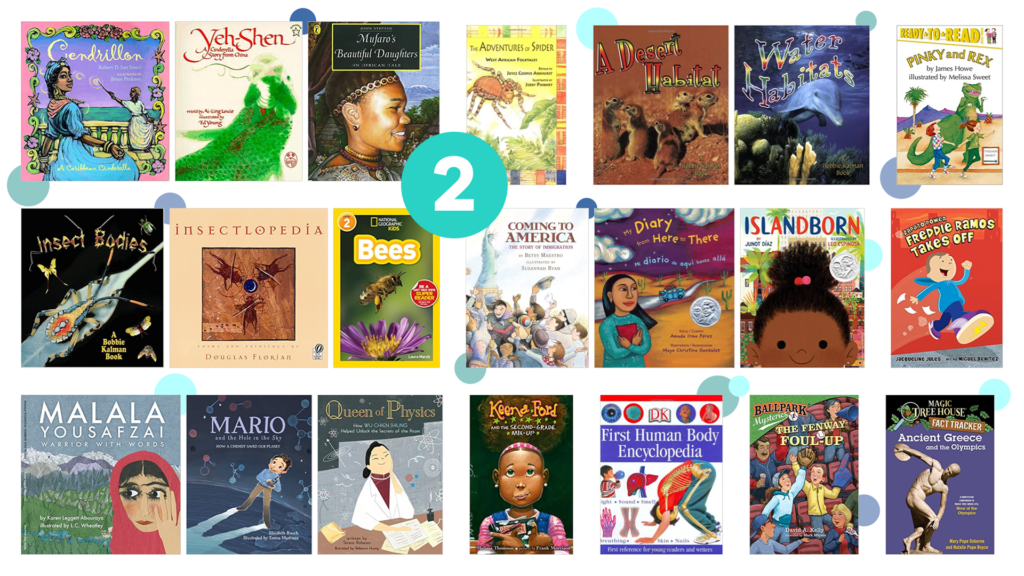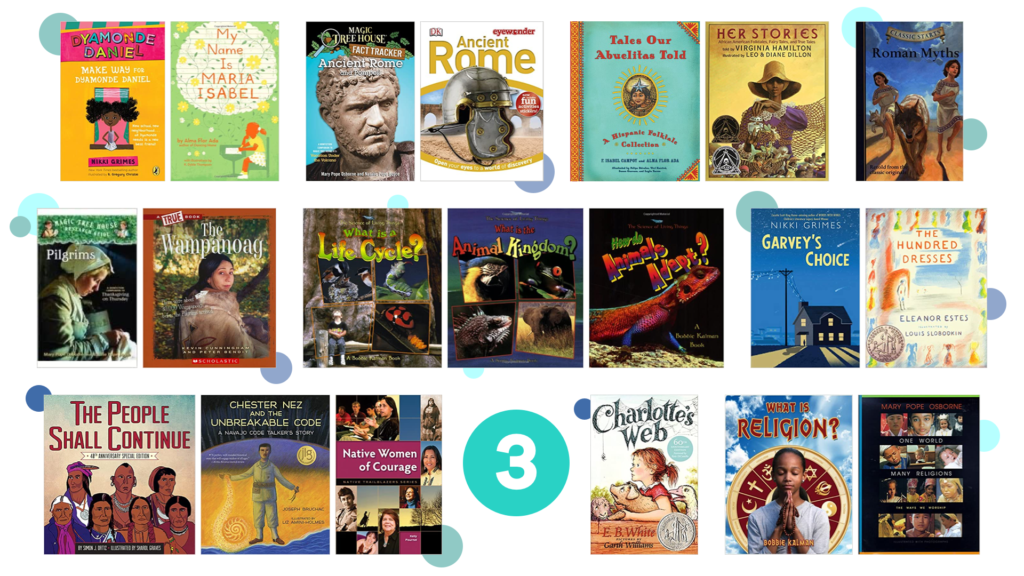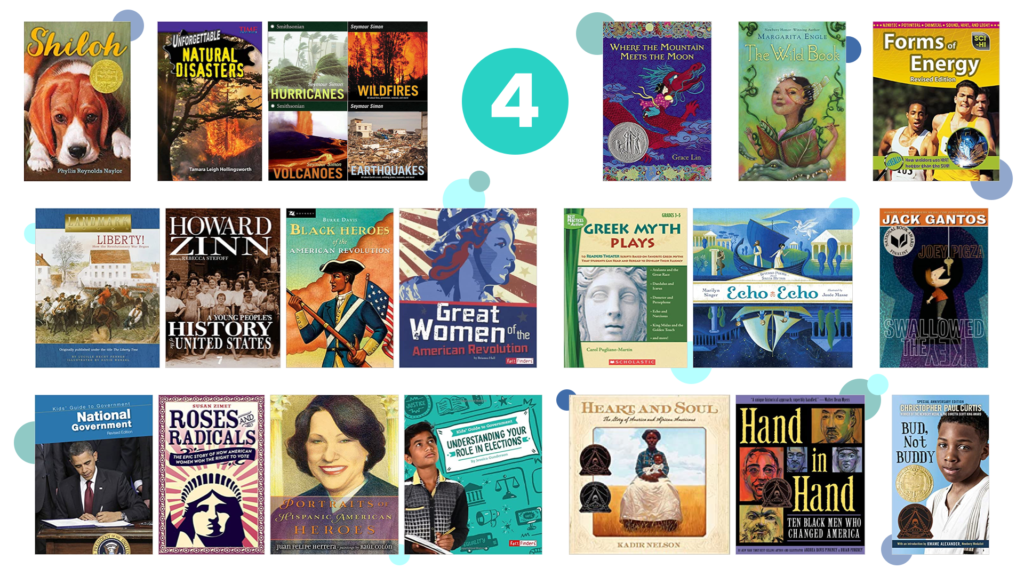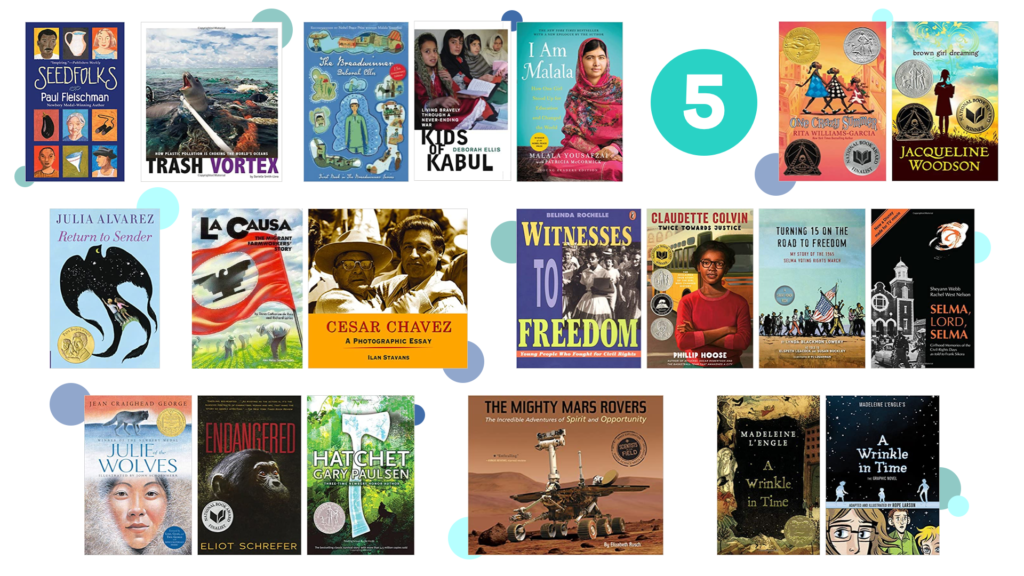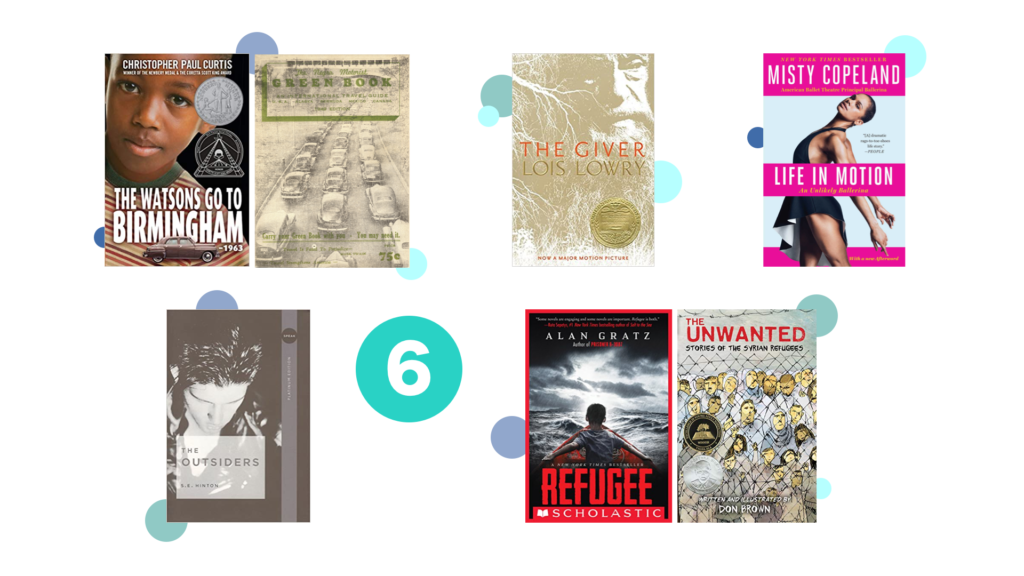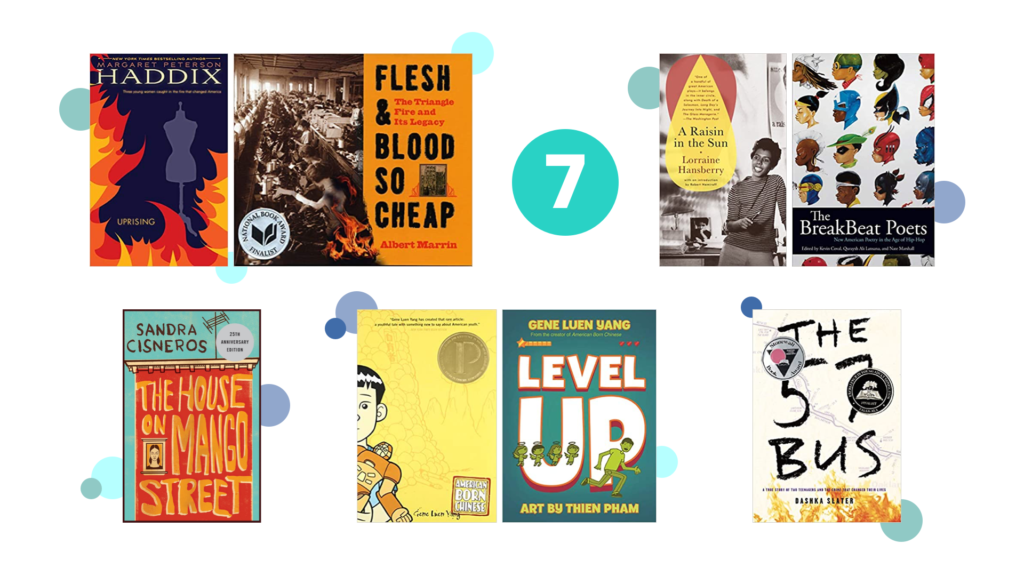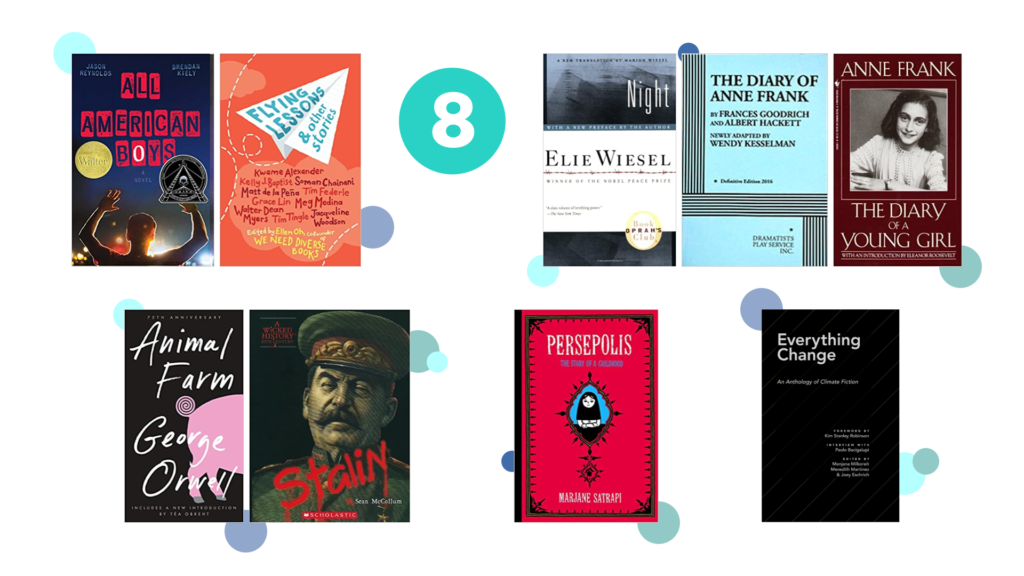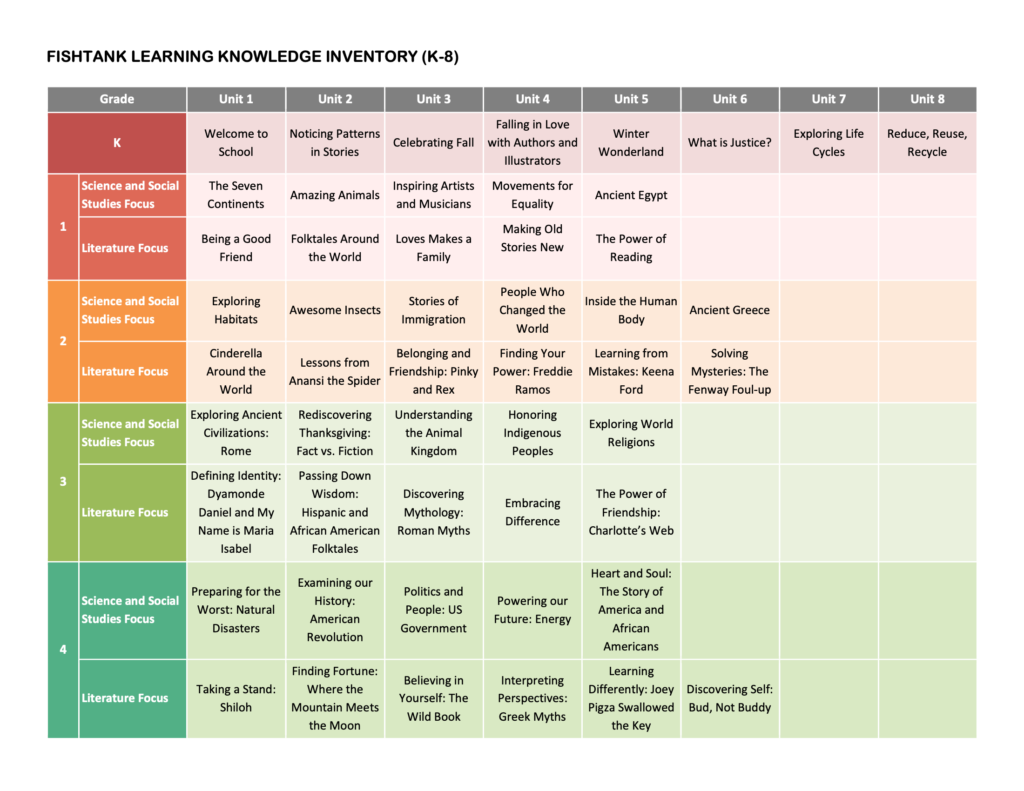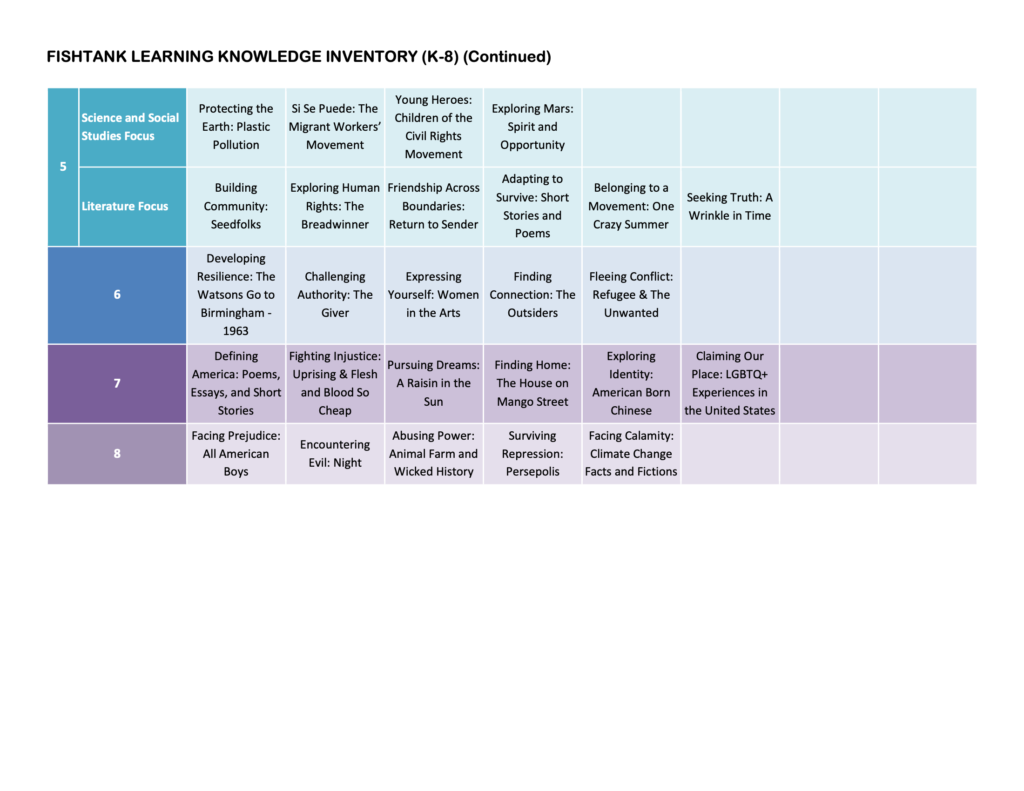Fishtank ELA (K-8)
Fishtank ELA units—incorporating social studies and science topics—are built tightly around the texts students read. Lessons are student- and text-centered, with rich discussion at their heart. Students are expected to be prepared and on task, and to take responsibility for their own learning and that of their classmates. Teachers are provided with the intellectual preparation they need to guide student learning, including making sure teachers themselves understand the readings before they lead instruction. While the unit lessons in Fishtank are free, Fishtank Plus offers extra teacher and student supports through a subscription model.
Rich, rigorous, diverse texts:
How Fishtank ELA designs for:
Deep knowledge building
Fishtank ELA units place a premium on diverse texts and topics that appeal to students’ natural curiosity about the world. Students see themselves in stories and characters while also learning about other cultures, experiences, and perspectives. For example, in Fishtank ELA’s grade 5 course, students read about plastic pollution, learn about the migrant farm workers movement, and explore the civil rights movement from the perspective of those who lived through it. Each core text on these topics is surrounded by shorter articles to create context and deepen knowledge.
Lessons are a lively mix of individual thinking and writing, partnered and small-group discussion, and full classwork. Daily writing is connected to the reading and the big ideas of each topic with longer periodic assignments to help students synthesize learning. Close examinations of several high-value words are part of every lesson.
Foundational skills and fluency for beginning and older readers
Fishtank does not have a foundational skills program in K-5 but works with clients to identify a research-based program that will integrate well into the ELA lessons. Grade-level fluency work is a regular part of the lessons throughout the grades, with passages that skillfully connect to the topics students are studying. The attention to fluency continues through grades 6-8 within the core curriculum. Data from the Fluency Assessment helps teachers make informed decisions about additional support for struggling readers. Importantly, the fluency assessments use passages from unit texts, allowing teachers to assess fluency based on that unit’s core text. In the Unit Launch of sixth grade, for example, Fishtank identifies specific text features that may influence a student’s fluency, including dialogue from multiple characters, colloquial language, and run-on sentences. By learning how some of these features may present challenges, teachers can then provide students with appropriate support.
There is also a tool focused on Morphology and Syllabication, which provides examples of common structural analysis and syllabication routines. Such tools help teachers focus vocabulary instruction on morphology, particularly affixes, and build students’ muscles for breaking down words into their meaningful parts.
Equitable access to challenging texts
Questions and tasks focus closely on what the texts can teach the reader. Lessons demand a good deal of student participation. They are built on social learning while expecting all students to take responsibility for their own. Through these processes, students develop self-awareness, a focus on their role in the world, and the power to direct their own learning.
Topics of study
Learning and exhibiting deep knowledge
Access Fishtank ELA
Fishtank ELA was developed by the nonprofit Fishtank Learning, which makes the materials openly available on its website. More resources and professional learning are available for a fee from Fishtank Plus.
Fishtank ELA (K-8) in districts
07/18/2024
“They are so excited to write about the butterflies. Teachers don’t think of it as they’re doing ELA or they’re doing science.”
04/17/2024
“It really encourages them to listen to each other and to add on to their answers and to agree and disagree.”
04/17/2024
“Each of us gets to tell part of the story.”
04/17/2024
“Supports have to be provided by the classroom teacher to equalize that playing field to ensure all are ready to be able to access the text.”
04/17/2024
“We stick to a single topic for several weeks, enabling students to deepen their understanding.”
04/17/2024
“I was not confident in teaching writing before this program at all. Now with this program, I can actually teach writing.”
04/17/2024
“Before we switched to Fishtank, my kids would dread writing. Now all of a sudden they see themselves as writers.”
04/16/2024
- Knowledge Matters Campaign
04/03/2024
“Kids are just consuming texts.”
06/07/2022
“We saw a huge increase in how students were speaking, reading, writing about the text independently.”
06/07/2022
“The units bring along these new ideas to kids that really get them thinking.”
06/07/2022
“One of the most interesting books I read was The Breadwinner.”
06/07/2022
“Student engagement has been phenomenal this year.”
06/07/2022
“It’s so helpful to have the rigor come from the curriculum and not be some added piece the teacher is having to fit in.”
06/07/2022
